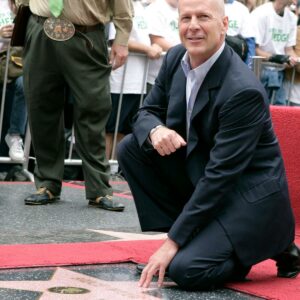Queen Latifah is a name synonymous with talent, resilience, and versatility. Born Dana Elaine Owens in Newark, New Jersey, in 1970, she began her career in the late 1980s as a groundbreaking rapper in a male-dominated industry. But Queen Latifah is much more than just a rapper—she is a singer, actress, producer, and a beacon of empowerment for countless people, especially women of color. Her rise to fame wasn’t just about musical talent; it was about her unwavering confidence and fierce independence that paved the way for a new narrative in hip-hop and entertainment. These traits have not only defined her career but have also resonated deeply with her audience, making her an influential figure in both music and popular culture.
Confidence as a Symbol
From the very beginning of her career, Queen Latifah exuded a level of confidence that was palpable. It was more than just an image—it was a message. In a genre dominated by men, she emerged with powerful lyrics that spoke directly to women, encouraging them to stand tall, be proud, and embrace their worth. Her early works, such as “Ladies First” (1989) and “U.N.I.T.Y.” (1993), are quintessential examples of how she used her music to project self-confidence.
“Ladies First,” a track from her debut album All Hail the Queen, is a feminist anthem that celebrated the strength and power of women. With assertive lyrics like “Believe me when I say being a woman is great,” Queen Latifah made it clear that women had a rightful place in the rap world. The song’s powerful delivery and upbeat tempo made it a rallying cry for women, particularly Black women, to assert their presence and challenge the status quo.
In “U.N.I.T.Y.,” Queen Latifah took her message of confidence a step further by directly confronting issues of misogyny and violence against women. The song’s refrain, “Who you calling a bitch?” became an anthem for self-respect and dignity. Queen Latifah’s delivery in this song is nothing short of commanding—her voice is both soothing and powerful, making it clear that she is not just speaking for herself but for all women who have been disrespected or devalued. The assertiveness in her tone embodies a sense of self-assurance that transcends music, serving as a reminder to her listeners to stand up for themselves, no matter the circumstances.
Queen Latifah’s confidence also allowed her to challenge stereotypes that often limited the representation of Black women in media. At a time when female rappers were often pigeonholed into hypersexualized or submissive roles, Queen Latifah stood apart with her boldness. She wore her natural beauty and self-confidence like armor, rejecting the industry’s attempts to define her. Her music became a platform not just for her voice but for the voices of countless women who were tired of being overlooked or underestimated.
Independence as a Symbol
Just as confidence has been a recurring theme in Queen Latifah’s music, so too has independence. From the beginning of her career, she charted her own path, refusing to be confined by industry expectations or societal norms. This spirit of independence is evident in both her music and her personal journey in the entertainment industry.
In songs like “Just Another Day” (1993), Queen Latifah reflects on the resilience and self-reliance that comes with living in tough neighborhoods. The track, with its smooth delivery and reflective lyrics, highlights the importance of staying strong and independent in the face of adversity. It’s not just about surviving; it’s about thriving on your terms, a message that resonates with many who have faced challenges in their own lives.
Her track “Queen of Royal Badness” is another testament to her independent spirit. With lyrics that celebrate her reign as a queen in the rap game, Latifah asserts her dominance and control over her destiny. She doesn’t wait for validation from others—she declares her worth on her terms. This theme of independence extends far beyond her music, seeping into every facet of her career. From her forays into acting to her business ventures and activism, Queen Latifah embodies the spirit of self-reliance.
Queen Latifah’s independent spirit also made her a trailblazer for female artists in the hip-hop industry. She didn’t just rap; she produced, acted, and eventually became a mogul in her own right. Her ability to navigate different fields—whether it be music, television, or film—without losing her sense of self is a testament to her independence. She broke down barriers that allowed future generations of women to pursue their dreams without compromising who they are.
Cultural and Social Impact
Queen Latifah’s influence extends far beyond her music. Her confidence and independence have had a profound impact on the cultural and social landscape, particularly in the world of hip-hop. At a time when female rappers were often sidelined, Queen Latifah emerged as a powerful force, helping to shift the narrative for women in the industry.
One of her most significant contributions to hip-hop is the way she redefined what it means to be a strong, independent woman in the genre. Before Queen Latifah, female rappers often had to conform to male-dominated standards of success, but she showed that there was another way. Her music celebrated womanhood without pandering to the stereotypes of the day. She promoted strength and self-sufficiency as positive attributes, encouraging her audience to embrace these qualities in their own lives.
Moreover, Queen Latifah’s influence has transcended music, reaching into other areas of entertainment and activism. In her acting career, she has taken on roles that further her message of empowerment, such as her portrayal of Matron “Mama” Morton in the film Chicago (2002). Her performance in the film earned her an Academy Award nomination, further solidifying her status as a multifaceted talent. Whether on the mic, on-screen, or behind the scenes, Queen Latifah has used her platform to uplift others and promote positive change.
Her cultural impact is also evident in her role as an advocate for equality and social justice. Throughout her career, Queen Latifah has spoken out on issues of race, gender, and inequality, using her influence to bring attention to these critical topics. She has supported various causes, from LGBTQ+ rights to education reform, always emphasizing the importance of confidence and independence in the fight for equality.
Queen Latifah’s music continues to resonate with audiences who value empowerment and authenticity. In a world that often seeks to box people in, her music serves as a reminder that confidence and independence are not just desirable traits—they are essential for navigating life’s challenges. Her lyrics continue to inspire new generations to be bold, be proud, and, most importantly, be themselves.
Conclusion
Queen Latifah’s legacy is built on more than just her talent—it is a testament to the power of confidence and independence. These traits have defined her music, her career, and her impact on the world. Through her lyrics, she has shown women—particularly Black women—that they have the right to be confident, to be independent, and to demand respect. She has challenged stereotypes, broken down barriers, and created a space for women in hip-hop to thrive.
But Queen Latifah’s influence doesn’t stop at music. Her journey from rapper to actress to entrepreneur is a testament to the power of self-reliance and determination. She has used her platform to uplift others, promote equality, and inspire generations to come. Whether through her music, her acting, or her activism, Queen Latifah continues to embody the message that confidence and independence are not just qualities to aspire to—they are the keys to unlocking true empowerment.
As new generations of artists and fans discover her work, Queen Latifah’s message of self-assurance and independence will undoubtedly continue to inspire. Her legacy is one of strength, resilience, and unwavering confidence—a legacy that will endure for years to come.





